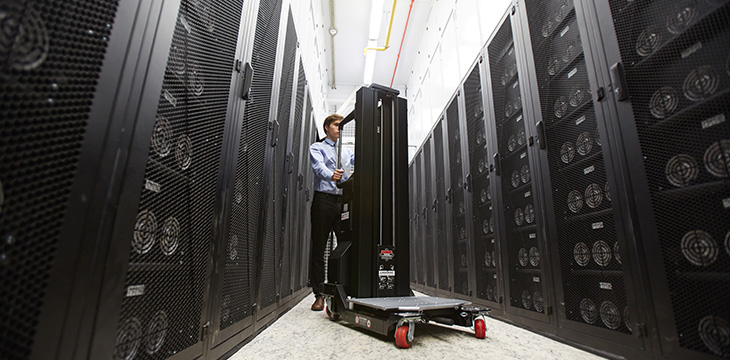|
Getting your Trinity Audio player ready...
|
Cryptocurrency mining is under attack once again by the media, this time thanks to a scandalous comparison. The University of Cambridge has developed a tool that shows the annual energy used by SegWitCoin (BTC) mining, and it reveals a lot of interesting insights into how the mining industry works, and how wasteful the world is with energy in many ways.
The media response has universally focused on one comparison though: BTC mining consumes more power than Switzerland. That’s certainly the angle the BBC took, and they used a lot of ink to spin this fact into a tirade against the mining industry.
While the tool’s co-creator, Michael Rauchs, clearly told the BBC that they were simply providing data for the world to take its own conclusions from, the media giant specifically chose to go to an expert that would spin this information to make crypto mining look wasteful. Alex de Vries, an accountant from PwC, was quoted by the BBC to show exactly how impotent BTC is.
In their summary of de Vries comments, BTC is shown to process fewer than 100 million transactions per year, insignificant against the world’s 500 billion and growing transactions through traditional financial institutions. He states that BTC uses more energy per transaction thank banks do.
Finally, the article also cites CO2 usage from BTC equaling that of Kansas City, the 38th largest city in the United States.
Now many of these facts can be true about BTC, which has now real use and is used as a store of value by those who are OK with the fact that it’s no longer the real Bitcoin. However, the basic facts about the mining industry, and the potential of the real Bitcoin, now represented by Bitcoin SV (BSV), are very misleading.
For starters, while BTC is incapable of the scaling necessary to make it a useful asset, BSV scales massively, with 128MB blocks already mined on the mainnet, 1.4GB blocks on the scaling test network (STN) and plans for unlimited scaling in the future.
With that scalability, BSV is not only prepared to scale to handle all the transactions of the world, it’s also capable of supporting the Metanet, the data carrier network of the future. By allowing enterprises to use the Bitcoin blockchain as a data tool, and not just a transaction ledger, BSV is providing a utility that will far outweigh its energy costs.
Even then, the energy consumption of mining is easy to exaggerate if you don’t compare it to the comparative consumption of traditional fiat financial industries. A 2017 Bloomberg article titled “No, Bitcoin Won’t Boil The Oceans” covers this well. At the time, crypto mining was estimated to consume 8.27TW per year, much less than the 59.19TW Cambridge says it does now. Elaine Ou wrote:
“That might sound like a lot, but it’s actually less than an eighth of what U.S. data centers use, 1 and only about 0.21 percent of total U.S. consumption. It also compares favorably to the currencies and commodities that bitcoin could help replace: Global production of cash and coins consumes an estimated 11 terawatt-hours per year, while gold mining burns the equivalent of 132 terawatt-hours.”
While that’s already a compelling argument that mining is relatively innocent when compared against the power consumption of fiat and gold, it doesn’t even take into account that of the 59.19TW Cambridge estimates is consumed now, the majority of that is spent on mining useless BTC and criminal dark coins. Take that consumption out, and it’s sure to look much more innocent.
Add to that several facts that BBC flat out ignores. While the world struggles with how to fight climate change, Bitcoin mining companies like Squire have helped push the growth of the renewable energy sector.
Even by Cambridge’s data, the first number on the page is mining energy production versus consumption against the world’s total figures. Mining represents 0.24% of the total production versus 0.27% of the consumption, and that’s a gap that’s likely to shrink and flip over time.
It also shows that Americans absolutely waste four times more energy than the total consumption of mining on a yearly basis, indicating that there are bigger fish to fry.
Mainstream media outlets could be forgiven for not being waist-deep in mining knowledge, and not having the knowledge to know how BSV will change the world, or how Bitcoin mining is actually making a positive difference to the world. However, when they willfully ignore data from their own sources to spin the story they want to tell, and bring in experts to back up that story, they shameful misrepresent the truth, and that’s not OK.
https://youtu.be/gBb9FSxfyVs

 03-02-2026
03-02-2026 




